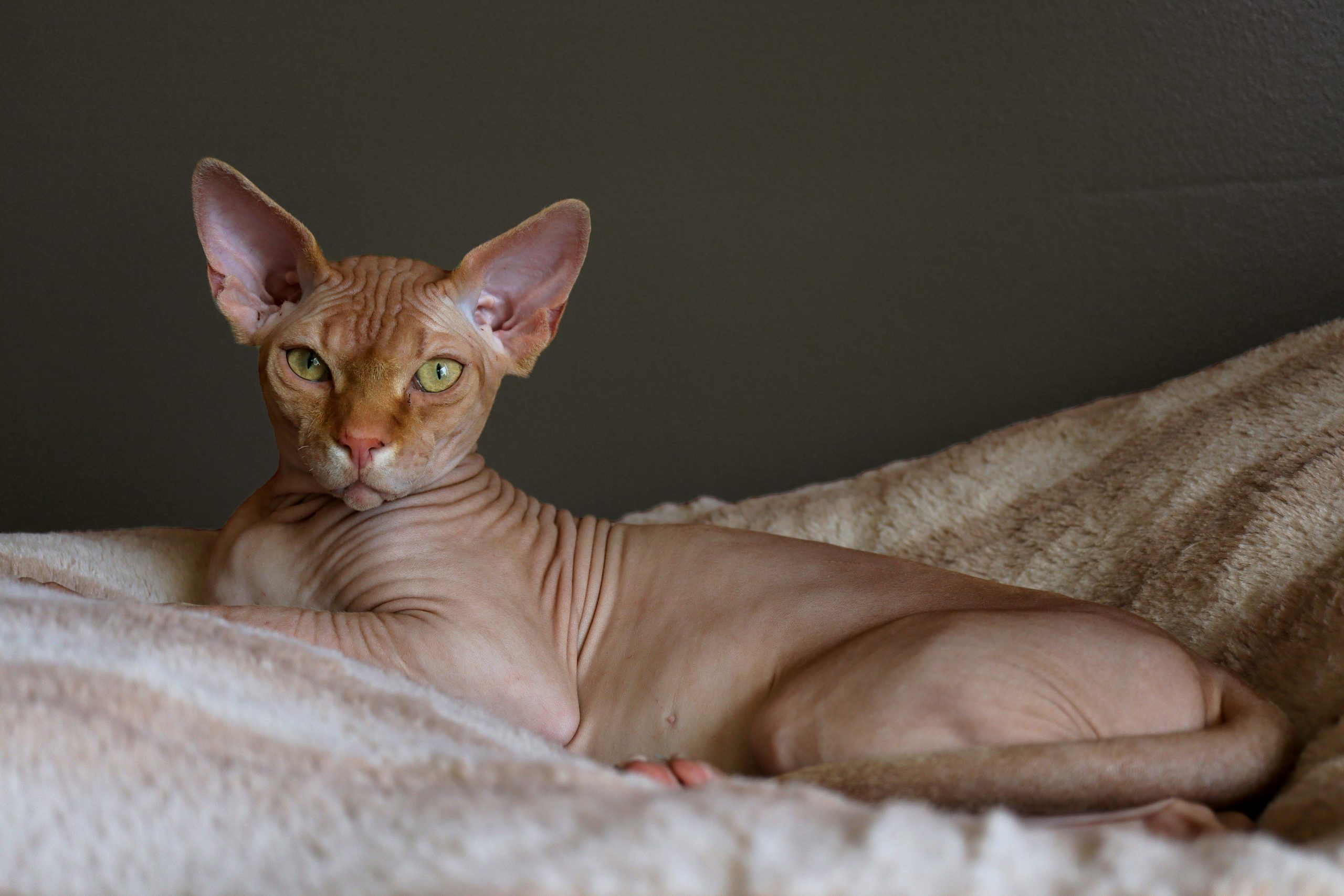The Sphynx cat, their vocalizations can be as distinctive as their lack of fur. If you’ve ever wondered why these bald beauties are so chatty, you’re not alone. Sphynx cats are known for their constant meowing, chirping, and even “talking” in a way that other breeds might not. So, what’s behind their incessant noise? Let’s dive into the reasons why Sphynx cats are so vocal and explore the factors contributing to their talkative nature.
Genetics Play a Big Role
The Sphynx breed itself has a genetic predisposition for being more vocal. Unlike some cats who might prefer silence, these felines seem to have inherited a trait that makes them more communicative. It’s almost like they’ve got a built-in megaphone! Their vocal nature isn’t just a quirky characteristic; it’s part of their genetic makeup, passed down through generations of breeding. This trait can be a fascinating aspect of their personality and a significant reason why they often seem like they’re in a constant state of conversation.
A Need for Attention and Affection
Another major reason Sphynx cats are so vocal is their need for attention and affection. These cats are known for their affectionate and playful personalities. When they meow, it’s often a way to seek interaction and companionship from their human friends. If you’ve got a Sphynx cat at home, you might find them meowing at you to join them in playtime or simply to get a bit of cuddling. Their vocalizations can be their way of saying, “Hey, notice me!” or “I’m here, let’s hang out!”
Hunger or Discomfort
Sometimes, a Sphynx cat’s vocalizations might be a sign of hunger or discomfort. Just like other cats, if they’re feeling hungry or need something, they will make their needs known. Sphynx cats, with their high metabolism due to their lack of fur, might vocalize more frequently if they’re hungry. Similarly, if they’re not feeling well or are uncomfortable, they might use their voices to let you know. It’s their way of communicating their needs, so paying attention to their meows can be crucial in addressing any issues they might be facing.
Environmental and Social Factors
The environment and social dynamics also play a part in how vocal a Sphynx cat might be. If they’re in a stimulating environment with lots of interaction, they might feel more inclined to use their voices. Socialization with humans and other pets can also affect their vocal behavior. If a Sphynx cat is exposed to various sounds and experiences from a young age, they may grow up to be more vocal. It’s like they’re conversing with the world around them, sharing their thoughts and feelings through their unique vocal expressions.
In summary, Sphynx cats are exceptionally vocal due to a combination of genetic traits, their need for affection, and their environment. Their constant meowing and chirping are part of their charm, reflecting their desire for interaction and their expressive nature. If you’re considering adopting a Sphynx cat or already have one, understanding their vocal behavior can help you bond with them and cater to their needs. So, the next time your Sphynx is chatting away, remember: they’re not just making noise—they’re trying to tell you something important!
FAQs
Are Sphynx cats more vocal than other cat breeds?
Yes, Sphynx cats are generally more vocal than many other cat breeds due to their genetic traits and their need for attention.
Why does my Sphynx cat meow so much?
Your Sphynx cat might meow a lot to get your attention, express hunger, or communicate discomfort.
Do Sphynx cats make good pets for people who live alone?
Absolutely! Sphynx cats are affectionate and can provide great companionship for individuals living alone.
Can a Sphynx cat’s vocalizations indicate health problems?
Yes, if your Sphynx cat’s vocalizations seem unusual or are accompanied by other symptoms, it could be a sign of a health issue, and a vet visit is advisable.
How can I manage my Sphynx cat’s vocal behavior?
Providing plenty of attention, playtime, and ensuring their needs are met can help manage their vocal behavior and keep them content.

